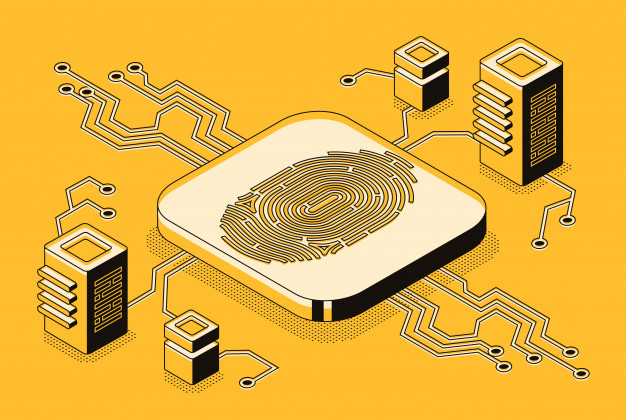
https://ditech.media/news/In accounting, the three categories of ledgers are the general, debtors’, and creditors’ ledgers.
The general ledger collects information from journals; each month the totals of all journals are posted to the general ledger. The four sections in a general ledger are the account balances, accounting periods, chart of accounts, and financial transactions. A special ledger is a general ledger with its own accounting rules for data transfer from ledgers. A traditional database is a data structure for storing information; blockchain is not a traditional database. Blockchain stores transactional records in several databases (as a block or ‘chain’) and in a peer-to-peer internet-based network that includes all transactions since its creation. It is a ‘digital ledger’ storage system or better described as a distributed ledger (DL) network. A DL is a digital, distributed, decentralised and linked ledger for data storage and retrieval of economic transactions; it is a program to record financial transactions as well as anything of value.

Blockchain Technology (BT) has a decentralised authority, while a traditional database system has a centralised authority. Blockchain can complete and transfer an entire transaction for both parties on the same platform. When a transaction is recorded in the blockchain, details of the transaction such as asset, price, and ownership are recorded, meaning the ledger is verified and settled within seconds and replicated and stored across several computer systems (nodes) on the network; each node has one copy of all the transactions on the blockchain network. Blockchain can record authorisations, documentations, and journal entries; there is no need to maintain and reconcile ledgers. Companies can use it for agreements, to secure payment, and for tracking. They can effortlessly access information from government agencies and insurers, supplier records, and verifications from trusted parties. With the transparency that blockchain provides, it has the ability to develop the accounting and auditing profession. Businesses are increasingly accepting BT which enables chartered pro
fessional auditors (CPAs) to retrieve audit data directly from blockchains. The global accounting giants in the auditing industry that are already using BT to record transactions are the ‘Big Four’ auditing firms Deloitte, PricewaterhouseCoopers (PwC), KPMG, and Ernst and Young (EY).
Although distributed ledger technology (DLT) and blockchain technology (BT) are two different technologies, many people believe that they are similar concepts; the reason being that BT and cryptocurrencies (in particular bitcoin) are often highlighted in the media while DLT has not received the focus it deserves. Using blockchain and distributed ledger in the same sentence creates the perception that BT and DLT are one and the same when in fact their definitions have become entangled. BT was first demonstrated during 1991 by two researchers, Stuart Haber and W. Scott Stornetta, who wanted to find a valid system for document timestamps to be tamper-free. The main difference between the two technologies is that blockchain is only one kind of DL which uses the same technology as DLT (so does bitcoin)! There is much more to BT than meets the eye. BT has the ability to provide a secure structure for advanced urbanisation; it can boost urban management, increase productivity, and improve economic growth. Transparency of departmental information can be obtained by logging information such as funding, grant details, municipal budget decisions, and tax information onto the blockchain to be accessed by the public.
Blockchain can be applied to various aspects of smart cities such as chain supply management, data centre networks, financial systems, smart healthcare, and smart transportation. It provides a suitable solution to a universal data storage platform which offers both practicality and security. BT is progressively surfacing as one of the most appealing smart city technologies with the vision of transforming smart cities into more efficient, resilient, secure, and transparent cities of the near future. Existing smart cities are using blockchain to its advantage and are challenging first world countries to do the same.
To name a few, cities such as Berlin, Dubai, New York, Singapore, Toronto, and Vancouver are examples of innovative and highly digitalised cities that represent a sustainable urban management to deliver advanced efficiency, energy, mobility, citizen participation, and waste treatment. The organisation Blockchain Cities Alliance (BCA) campaigns for smart cities to use blockchain and supports those that already use it. BCA also acts as mediator between blockchain experts and smart cities. Boyd Cohen, co-founder of BCA, together with his team, prepared a report to determine the most active blockchain cities around the world. His objective analysis included blockchain leadership, blockchain start-up activities, and regulatory friendliness of smart cities.
They collected different data points from each of these categories; to develop the potential of a blockchain society, they emphasised factors such as the involvement of blockchain investors, the pro-active role of blockchain entrepreneurs and start-ups, and the encouragement of local and national governments. The research was the first of its kind to reveal the top ten global blockchain cities. Firstly, the analysis disclosed the startling fact that well-established smart cities were not the only early implementers of BT. Secondly, it discovered that blockchain engineers and entrepreneurs (known as the blockchain crowd) tend to congregate in cities where talent was concentrated and regulations were friendly. The observation was that the ‘blockchain crowd’ gathered in cities such as New York, Singapore, and Toronto (even lesser known cities such as Tallinn and Zug). These are the top blockchain cities in order of first to tenth place; Singapore, London, Zug, New York, San Francisco, Berlin, Tallinn, Toronto, Dubai, and Hong Kong. Zug and New York tied, but Zug had the advantage over New York. Vancouver tied with Hong Kong, but Hong Kong had a more favourable count from the different data points.
The government of Singapore is considered more business-friendly, blockchain-friendly, and more transparent than other smart cities. Singapore (known as the city-nation) has several co-working blockchain set-ups (spaces) such as Longhash and NPower. The Monetary Authority of Singapore has started a decentralised inter-bank payment and settlement system. The GovTech office is currently researching other blockchain case studies. In London, the government supports and encourages the blockchain atmosphere. London came second in the top global blockchain start-ups. Their government’s cryptocurrency task force intends to regulate and promote its growth. Zug, the small Swiss town, or the ‘Crypto Valley’ as it is generally known, is a blockchain-friendly place.
The government of Switzerland offers flexible regulatory and tax treatment for blockchain start-ups; it has a much friendlier regulatory environment than New York. Zug is home to the Ethereum Foundation and has more than 450 blockchain-related companies and start-ups. Recently, the government of Zug developed a blockchain system to accept bitcoin for specific government payments. Being a global financial centre, New York’s financial technology has led to its involvement with BT. The city has several blockchain start-ups and received the top score for blockchain professionals in the city. New York shows potential growth to develop into a blockchain center. San Francisco is known as ‘the Silicon Valley’ and maintains a great passion for blockchain development. Compared to other smart cities, Berlin has a relatively low cost of living and a highly skilled workforce which has always attracted entrepreneurs. In BT, it scores high in government transparency and regulatory friendliness. Tallinn, the capital of Estonia, used its dominant digital background as an advantage to embrace BT.
The objective of using blockchain for its own purposes and to encourage the establishment of blockchain start-ups, led to the vision of becoming one of the initial adopters of blockchain in its government procedures. The non-profit Estonian Cryptocurrency Association in Tallinn promotes the blockchain ecosystem locally as well as globally. Furthermore, Estonia’s e-residency program permits anybody to set up a digital enterprise in the country. Toronto is home to Ethereum and Vitalik Buterin, which means that it is deep-rooted in the global blockchain community; therefore, it is regarded as a global leader in BT. The non-profit Blockchain Canada is active in its dynamic attempt to connect the Canadian blockchain system. The Blockchain Research Institute has researchers based in Mumbai, Sao Paulo, and Zurich. With AI-based proposals, Toronto is expected to be fertile ground for the amalgamation of AI and blockchain for innovative and futuristic digital economies.
Dubai is motivated to become the world’s first blockchain-powered city by the year 2020 and is presently implementing blockchain strategies such as health care records, identity regulations, land registry in real estate, and visa processing. To accomplish its objective, the city has also launched a Blockchain summit to emphasise its devotion to become the happiest place for people to live in. Until recently, New York was the only smart city that divulged a similar ambition as Dubai (to become a blockchain city). In the near future, Singapore might follow this ambition too! Hong Kong conquered the tenth place over Vancouver due to its charisma such as more blockchain investors, blockchain jobs, and start-ups than Vancouver. The city has declared several blockchain proposals such as the Bitcoin Association of Hong Kong (appointed to promote the local blockchain ecosystem) and the Hong Kong Blockchain Society.











